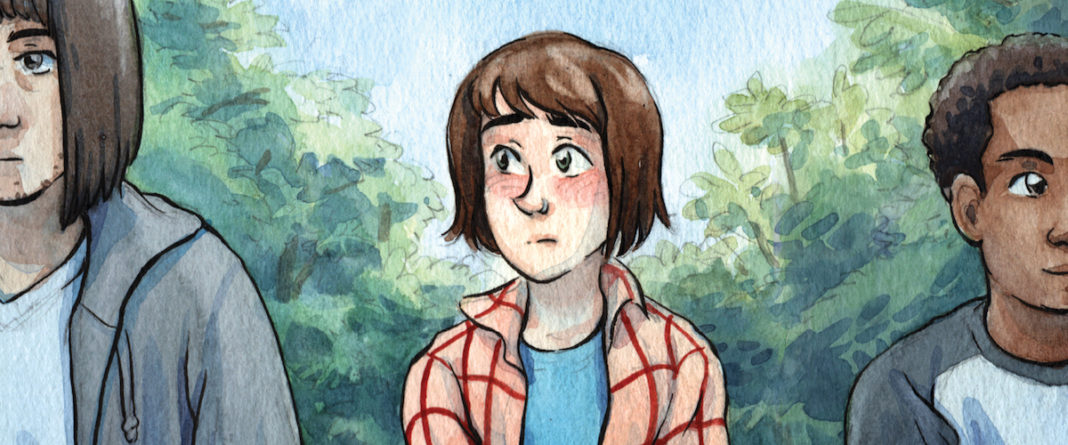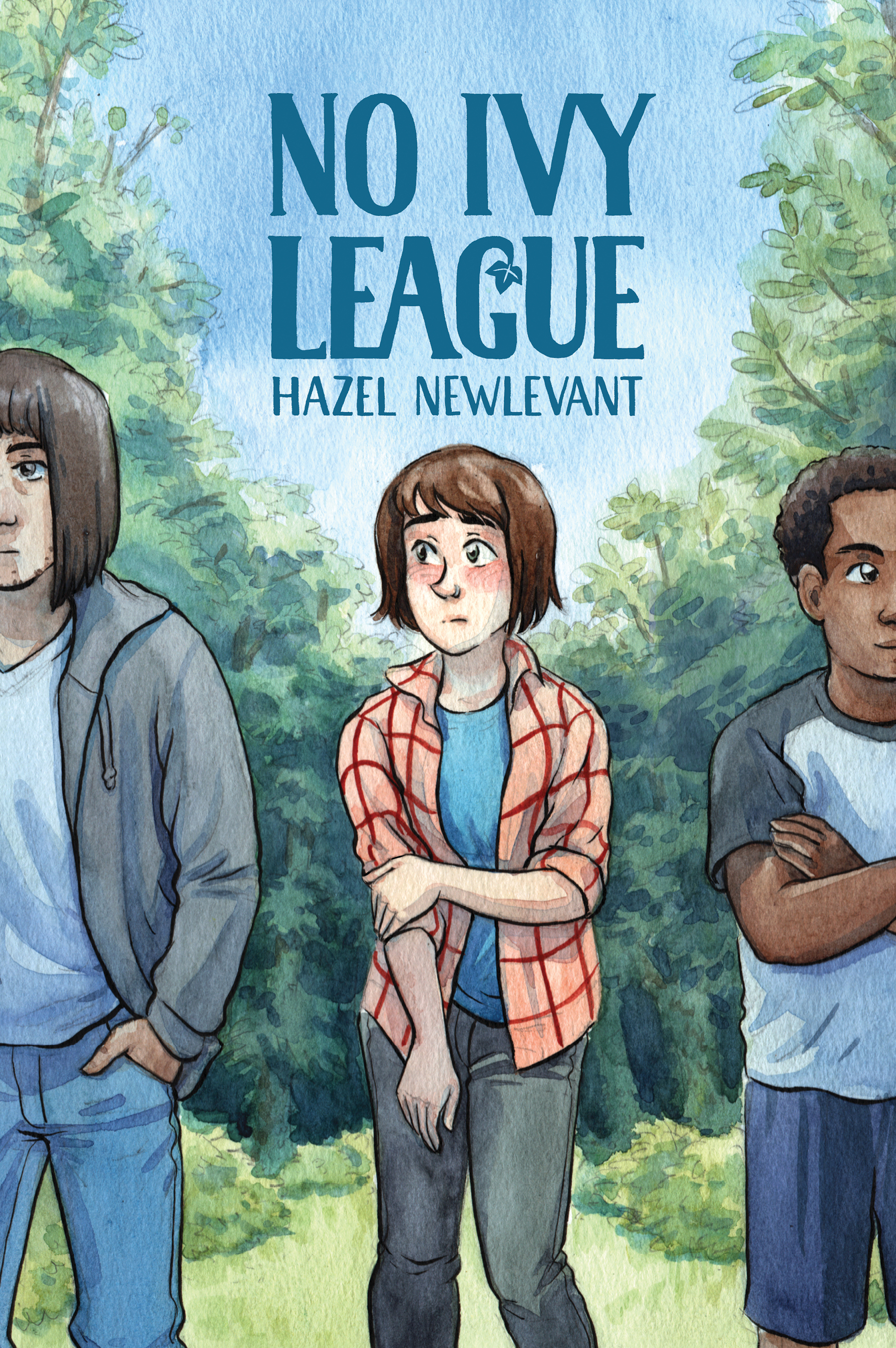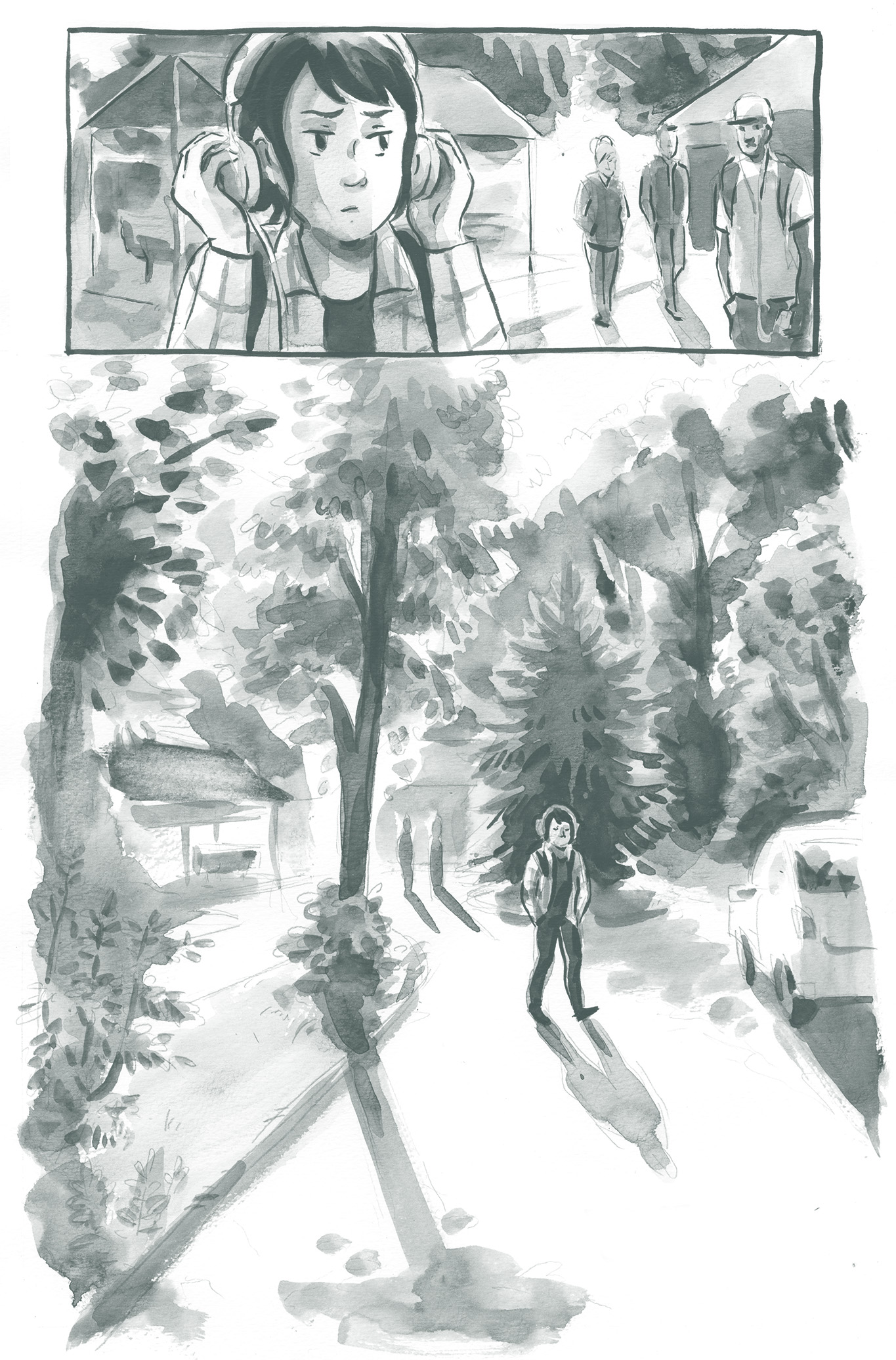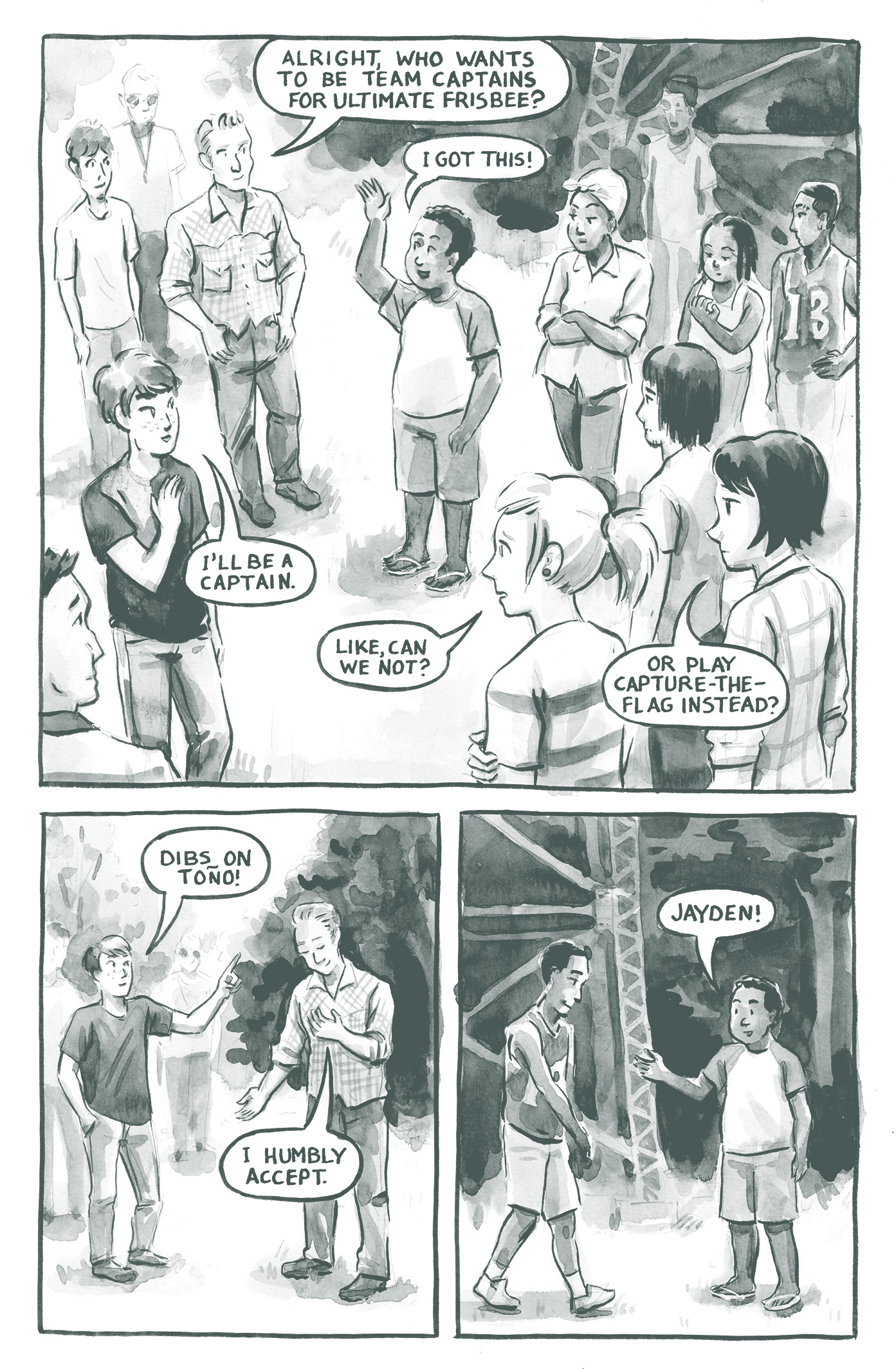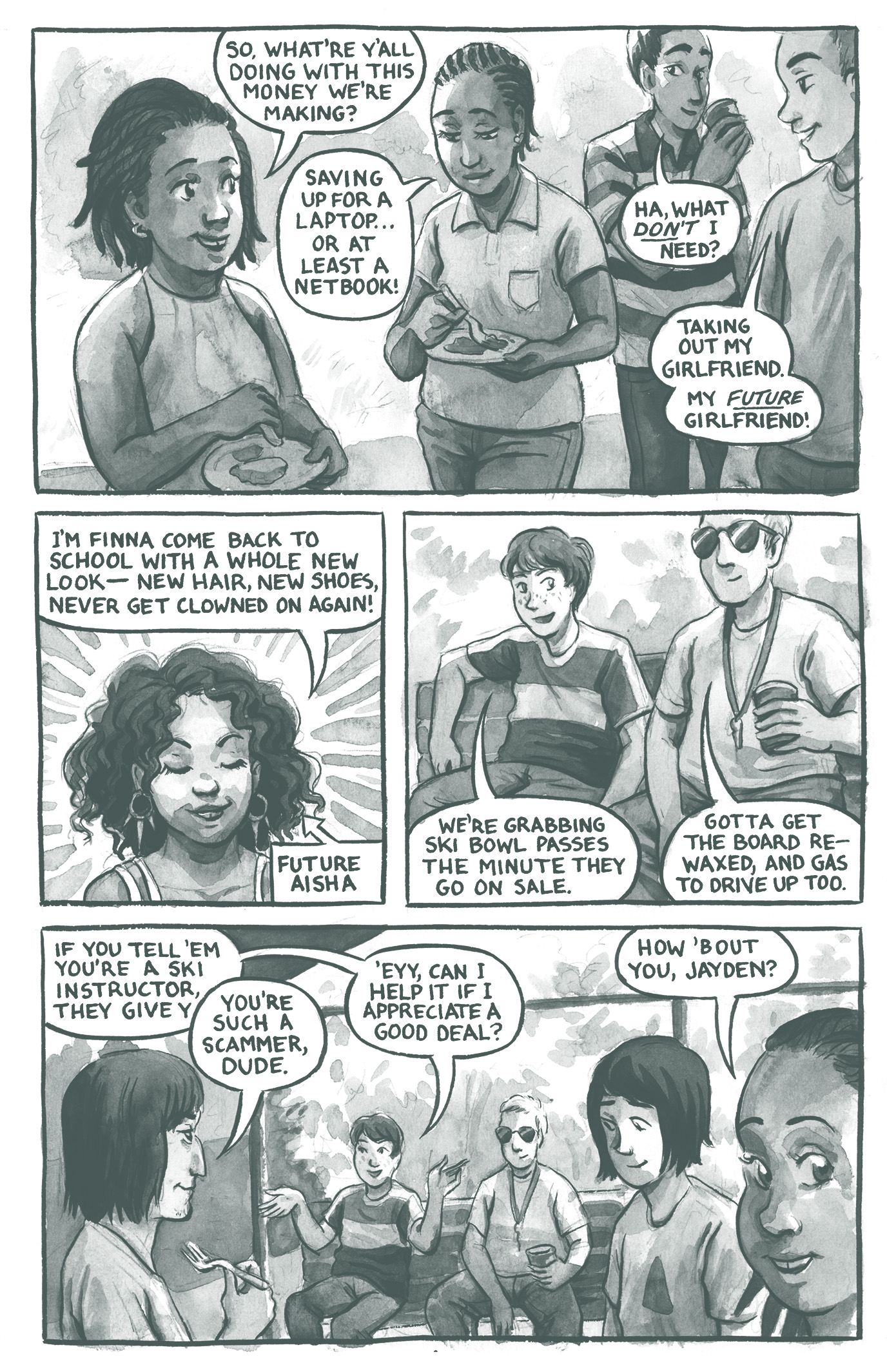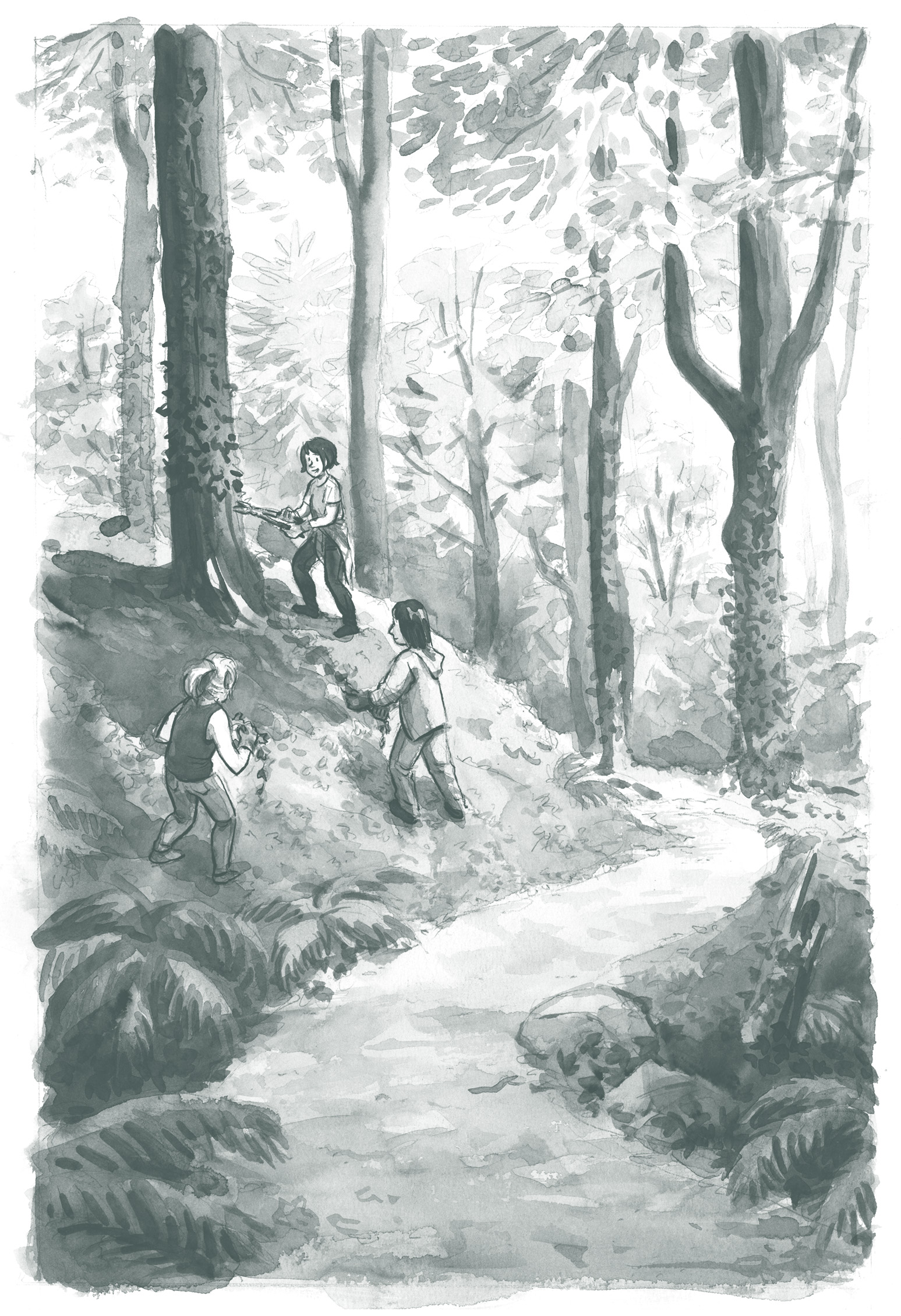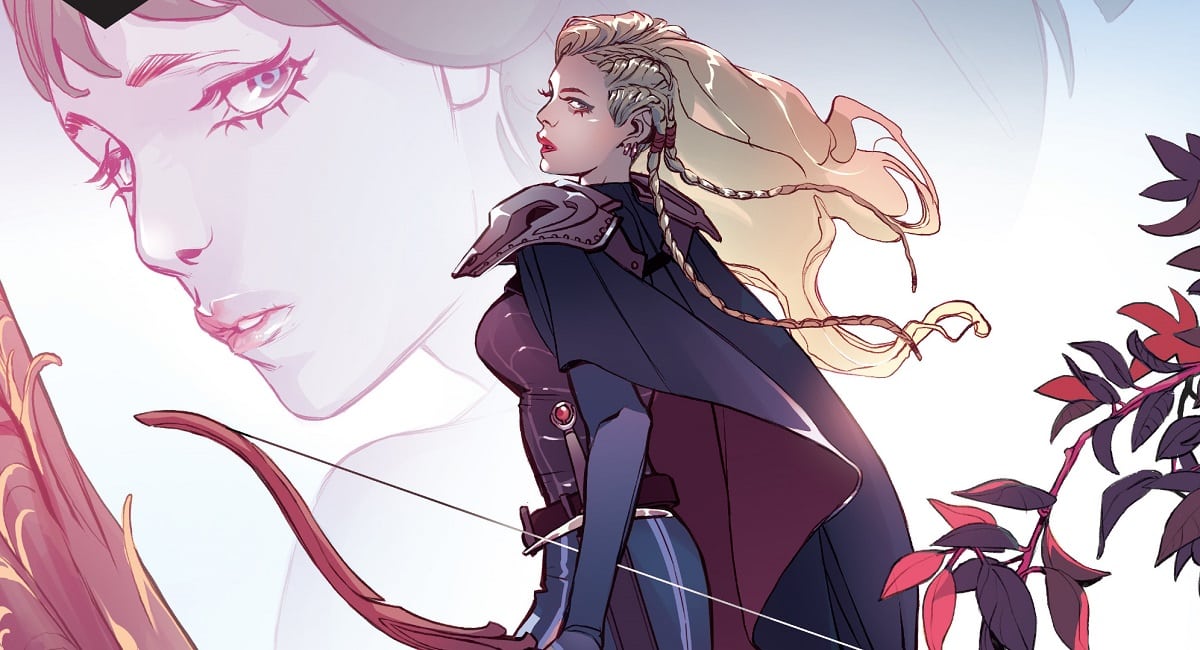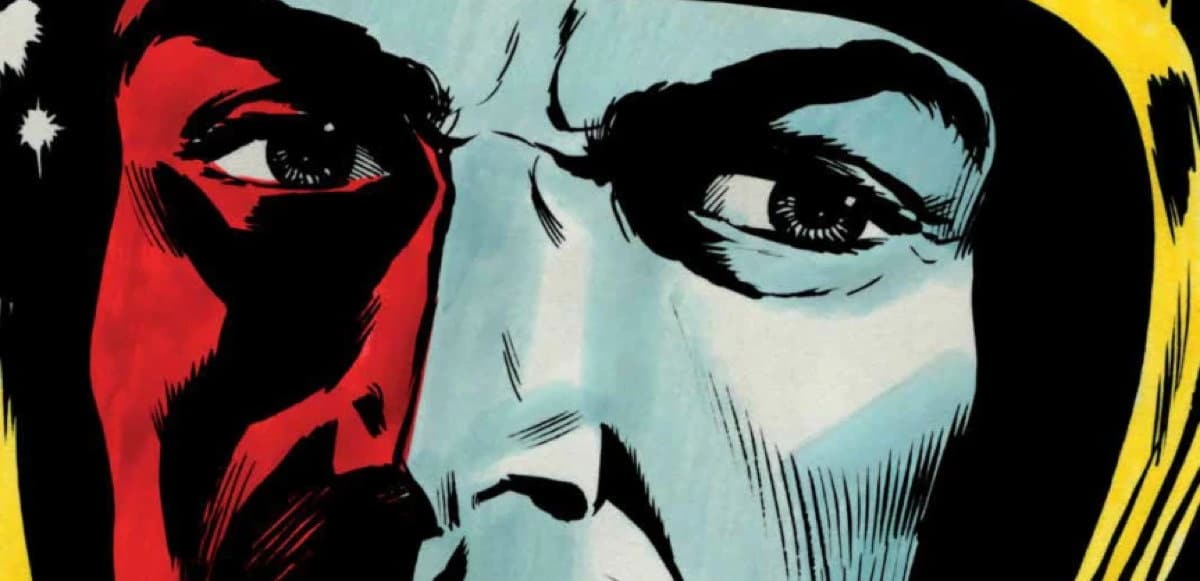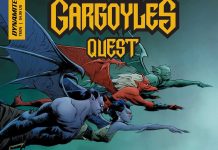Hazel Newlevant ’s upcoming autobio graphic novel from Lion Forge, No Ivy League, is a story that explores how one summer can leave you with a completely different perspective of the person you are, and about how recognizing one’s privilege can create new paths toward the person you’ll become.
The Beat spoke with Newlevant via phone about their creative process, the comics they find inspirational, and why it’s so important to have stories about recognizing white privilege.
AVERY KAPLAN: Do you have a set schedule or routine for creating comics?
HAZEL NEWLEVANT: It has varied a lot because I worked on the book over the course of five years. I did a lot of other projects in-between, like my anthologies, Chainmail Bikini and Comics for Choice, and also my book Sugar Town, so there were times when I wasn’t working on it at all. I also worked for Lion Forge as an editor for most of the time.
The last year of working on the comic, I worked on it as my sole artistic focus, so my routine was basically: finish my editor job, have some food, smoke a little pot to turn off my brain and make sure that I couldn’t answer professional emails even if I wanted to…
I followed Kriota Willberg’s advice for taking care of your body from her book Draw Stronger quite faithfully, and I’d recommend that. So I would warm up by dancing around my room, shaking my ass for my cats, and stretching, and then I would try to draw until like 11 PM… Then, cool-down stretch, watch TV before bed. So that was most of 2018. I was working full-time as an editor and then doing as much drawing as I could afterwards and it was pretty exhausting. But then I got laid off in November, and it was actually a relief to just be able to work on the book at a reasonable pace.
KAPLAN: What was the process of creating this story? How did it make its way from minicomics to graphic memoir? Were there any particular challenges it faced along the way?
NEWLEVANT: It originated as minicomics because my friend Jordan Michael, who runs the micro-press JMC Aggregate, contacted me one day and was like, “Do you want to do a series of single issues/minicomics?” And I was like, “Yeah that sounds great!”
It was a micro-press, but it was still the first time that somebody had contacted me saying that they wanted to publish my solo work. And I really like Jordan and what he publishes so I was like, “Yeah I’ve been thinking of doing this story about this summer job and that could become a series, I think.” So given his encouragement and knowing that he was going to publish it, I started writing the story in chapters.
My “writing” process is drawing very detailed thumbnails as the first thing. I don’t really like to do anything that’s text-only or a script. To me, text and dialogue is my weak point, so I hate starting from there. I always want to start from having some visuals and thinking of the page layout and what the shots are going to be. So I just sort of holistically try to make it a page, and then, you know… If it doesn’t work I can redesign it.
I drew chapter one and Jordan published it, and I wrote a vague outline for the rest of the book. While I was working on chapter two I found my agent, Tanya McKinnon, who has just been a really fabulous influence on the book. She really believed in the need for a coming-of-age graphic novel about coming to terms with one’s place in white supremacy and was very encouraging and helped me lean in to what the story was really about.
She saw the first two chapters and gave me feedback as I was writing the rest of the book. Then Jordan published the second chapter as a minicomic, and then I found my publisher for the whole book, Lion Forge, where of course I was already working as an editor. Andrea Colvin, who was my boss, was extremely encouraging of Lion Forge publishing it, and also had a lot of input as an editor. She and Tanya both pushed me to add more about my life as a homeschooler and what that was like, to contrast it with the job.
KAPLAN: Why was it so important to include the details about being homeschooled?
NEWLEVANT: That was the last piece of the writing to fall into place, because I was having a hard time quantifying what my regular life was like – kind of like a fish in water. But very late in the game, I realized I could add this whole thing about this “What’s Cool About Homeschool” video contest, which is something that me and my friends really did it just actually happened the summer before the No Ivy League job rather than at the same time.
That really made things click, because these videos were us describing what we thought homeschooling was through our own words and art. I was able to contrast that in many ways with the job and show myself learning the limitations of that viewpoint, in sort of a compressed time frame, where I really compressed the knowledge and growth of maybe a few years into one summer.
KAPLAN: How did you decide on this story for your first full-length graphic memoir?
NEWLEVANT: I just really clearly saw it as my coming-of-age moment where I went from having a juvenile understanding of the world to a more nuanced one, and went from seeing myself as always either the “good guy” or “the victim” to having a more complicated understanding of my place in the world.
The fact that it was all in this contained timeframe of the summer job, so I could really see where it started and where it ended, made it easy to wrap my head around as a story. I was into exploring all of the different vectors of privilege and oppression and power dynamics that were going every which-way. It was also an experience that I wanted to work through and process myself, artistically.
But especially with Tanya’s encouragement, I felt like coming to grips with one’s place in white supremacy and questioning it and at least beginning to look restorative justice is an important coming-of-age process that I think it is good either to help some people through or reflect back to them as adults, as something people can relate to.
KAPLAN: This memoir tackles a lot of complicated and intersecting topics, including race, gender, and class divides. What was it like to approach these issues? Did you have a clear idea of how you would be navigating them when you began or was it more a matter of feeling it out as you went?
NEWLEVANT: I had a clear idea of the events of the summer, so the source material of my memories was there and was set, but I think I did work through how I was going to approach it. In early drafts I had a lot more thought balloons or captions. In early versions I felt like I was using the thought balloons to sort of justify my past self, or spell out what I was thinking, and then in further drafts of the story I removed almost all of them just to make the reader be like, “What do you think the protagonist of Hazel might be thinking or feeling?” and let it be implied.
KAPLAN: Were there any scenes that you were tempted to leave out?
NEWLEVANT: I did leave out a whole plotline about me being out as bi at work, and people (including my bosses) having a negative response to that because I worried that it distracted from the narrative of my two love interests who were male. But in terms of things that are actually in the book…
Anything that reflects badly on me or is a bit complicated with my parents—I very much didn’t want to make them look bad or say that they made the wrong choices by homeschooling me—but I’m definitely saying some complicated and touchy stuff about my upbringing. All that stuff that’s hard to put out there for any reason, had to be there, and there was no question about including it because that’s what’s most interesting to read about.
KAPLAN: Was it difficult to think back to times when you were singled out for being white?
NEWLEVANT: I think it was difficult to write about that in a way where it doesn’t seem like my current authorial standpoint is “boo hoo, I got picked on and was the victim.” I think the difficulty there was being honest about how I felt shitty in the moment while having this broader authorial consciousness of how I was by no means the underdog and people’s negative reactions were quite understandable.
KAPLAN: Are there any comics or creators you find particularly influential, for this work or in general?
NEWLEVANT: For this work in particular, certainly This One Summer by Mariko Tamaki and Jillian Tamaki, in terms of both the limited summer timeframe and the way that natural beauty and wilderness are shown and expressed, and also that it just sort of puts interactions out there that are influenced by puberty and gender and race and class without any narration, aside from the main character’s perspective. When I was reining in the thought balloons, I thought of that book as an example of subtly.
Ivy by Sarah Oleksyk. Of course there’s the name, but I’ve always been a big fan of that book and I love what Sarah did with having an ornery, not-always-in-the-right teen girl protagonist who I still found myself rooting for.
And Sunny by Taiyo Matsumoto. The kids in that book are younger than the teens in my book, but I was inspired by the way he deals with the ensemble cast, and every time I was at a loss as what to do with a page layout I would grab a volume of Sunny and see if there was inspiration I could take.
No Ivy League hits shelves Aug. 20 and is currently available for pre-order. To keep up with Newlevant, check out their website or follow them on Twitter @HNewlevant. You can check out the cover art for No Ivy League and a preview below.
Disclaimer: The Beat is owned by Polarity, which also owns Lion Forge Comics.


